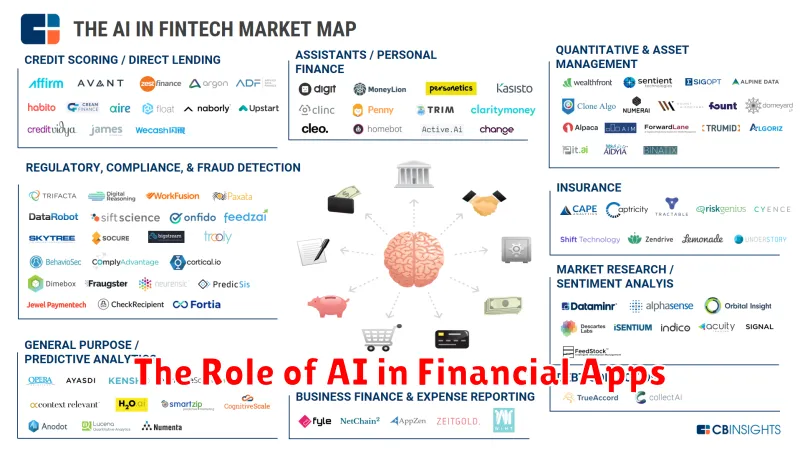The financial industry is undergoing a rapid transformation, driven by the rise of mobile technology. Mobile apps are changing the way people manage their finances, making banking and investment services more accessible, convenient, and personalized than ever before. From tracking expenses and setting budgets to investing in stocks and cryptocurrencies, financial apps are empowering individuals to take control of their financial well-being. This article explores how mobile apps are revolutionizing the financial industry and the impact they are having on consumers and institutions alike.
The convenience and user-friendliness of mobile apps have made them an indispensable tool for managing finances. Users can easily access their bank accounts, pay bills, transfer funds, and even apply for loans all from their smartphones. The ability to manage finances on the go has eliminated the need for physical branches and long wait times, making financial services more accessible to a wider range of individuals. Moreover, the integration of artificial intelligence (AI) and machine learning (ML) is enabling financial apps to provide personalized recommendations and insights, helping users make informed financial decisions.
The Rise of Mobile Banking Apps

The financial industry is undergoing a digital transformation, with mobile banking apps playing a pivotal role in this evolution. These apps have become indispensable tools for consumers and businesses alike, offering a convenient and secure way to manage finances on the go. The rise of mobile banking apps is driven by several factors, including the increasing adoption of smartphones, the demand for 24/7 accessibility, and the desire for seamless and personalized financial experiences.
Mobile banking apps have revolutionized the way people interact with their financial institutions. They provide a wide range of functionalities, including checking account balances, transferring funds, paying bills, setting financial goals, and even investing. These apps have also introduced innovative features like mobile check deposit, contactless payments, and real-time transaction alerts, making it easier than ever for users to manage their money effectively.
The convenience offered by mobile banking apps is a major factor in their popularity. Users can access their accounts and perform transactions from anywhere at any time, eliminating the need to visit a physical bank branch. This accessibility has made banking services more readily available to a wider audience, particularly those who may not have access to traditional banking facilities.
Furthermore, mobile banking apps are designed to enhance security. They utilize advanced encryption and authentication measures to protect sensitive financial data, providing users with peace of mind when managing their finances digitally. These features have made mobile banking a trusted and secure alternative to traditional banking methods.
The rise of mobile banking apps has significantly impacted the financial industry, forcing traditional institutions to adapt to the changing landscape. As technology continues to advance, we can expect even more innovative features and functionalities to emerge in mobile banking apps, further shaping the future of financial services.
How Fintech Apps Are Changing the Way We Handle Money
The financial industry is undergoing a dramatic transformation, driven by the rise of fintech apps. These innovative mobile applications are changing the way we handle money, offering a range of services that were once only available through traditional banks and financial institutions.
One of the most significant impacts of fintech apps is the increased accessibility of financial services. Gone are the days of long lines at banks or complicated paperwork. Fintech apps allow users to manage their money, make payments, and invest from the convenience of their smartphones.
Another major change brought about by fintech apps is the rise of personalized financial services. These apps leverage data analytics to understand individual spending habits and financial goals, providing tailored advice and recommendations. This level of personalization was previously unavailable, empowering users to make more informed financial decisions.
Fintech apps are also disrupting the traditional lending landscape. Peer-to-peer lending platforms allow individuals to borrow and lend money directly, bypassing traditional banks and offering potentially lower interest rates. This increased competition has forced banks to become more agile and innovative in their offerings.
The rise of fintech apps has democratized finance, making it easier and more accessible for individuals to manage their money. With their innovative features and personalized services, these apps are changing the way we think about and interact with the financial industry.
Security Concerns in Mobile Financial Apps
The increasing popularity of mobile financial apps has brought about a revolution in the financial industry. These apps provide users with seamless access to their finances, enabling them to manage accounts, make payments, and invest on the go. However, with the convenience comes a significant concern: security.
Mobile financial apps store sensitive data such as financial information, account details, and passwords. This makes them prime targets for cybercriminals. Data breaches, malware infections, and phishing attacks are some of the major security risks associated with these apps.
To mitigate these risks, developers and financial institutions must prioritize robust security measures. This includes employing strong encryption protocols, implementing multi-factor authentication, and conducting regular security audits. Users, on their part, should be vigilant about app permissions, download sources, and suspicious activities.
While the convenience of mobile financial apps is undeniable, it’s crucial to acknowledge the potential security threats. By implementing strong security practices and maintaining awareness, we can ensure a safe and secure financial experience in the digital age.
The Role of AI in Financial Apps

Artificial intelligence (AI) is playing a pivotal role in revolutionizing the financial industry through mobile applications. AI-powered financial apps are transforming the way individuals and businesses manage their finances, offering a range of benefits and functionalities.
One of the key roles of AI in financial apps is personalized financial advice. AI algorithms can analyze user data, such as spending patterns, income, and financial goals, to provide tailored recommendations on budgeting, saving, and investing. These insights help users make informed financial decisions and achieve their financial aspirations more effectively.
AI also enhances the security of financial apps. By leveraging machine learning, apps can detect fraudulent activities and suspicious transactions in real-time, protecting users from financial scams and cyberattacks. Advanced authentication methods powered by AI, such as facial recognition and voice biometrics, further strengthen security measures.
Moreover, AI enables automated financial management. AI-powered apps can automate tasks such as bill payments, money transfers, and investment rebalancing, freeing up users’ time and reducing the risk of human error. This automation streamlines financial processes and enhances efficiency.
AI is also transforming the customer service experience in the financial industry. Chatbots and virtual assistants powered by AI can provide instant and personalized support to users, resolving queries and addressing issues 24/7. This personalized and efficient customer service enhances user satisfaction and loyalty.
In conclusion, AI is a transformative force in financial apps, offering personalized financial advice, enhanced security, automated financial management, and improved customer service. As AI technology continues to advance, we can expect even more innovative and impactful applications in the financial sector, further revolutionizing the way we manage our finances.
The Future of Mobile Payments
The financial industry is undergoing a dramatic transformation, driven by the rapid adoption of mobile technology. Mobile apps are revolutionizing how we manage our finances, making transactions seamless and accessible like never before. This evolution has paved the way for a future dominated by mobile payments, offering a glimpse into a world where traditional payment methods become a relic of the past.
The rise of mobile payments is fueled by several key factors. Firstly, the ubiquitous nature of smartphones has made it incredibly convenient for users to carry their financial lives in their pockets. Secondly, the development of secure and reliable mobile payment platforms, like Apple Pay and Google Pay, has instilled confidence in consumers, eliminating concerns about data security. Lastly, the growing demand for contactless transactions, particularly in the wake of the COVID-19 pandemic, has accelerated the adoption of mobile payment solutions.
The future of mobile payments holds immense potential. We can anticipate a surge in innovative payment solutions, such as biometric authentication, cryptocurrency integration, and peer-to-peer payments. These advancements will further streamline financial transactions, enhancing security, speed, and convenience for users. The integration of mobile payments with other financial services, like budgeting apps and investment platforms, will create a comprehensive and personalized financial ecosystem.
As the financial landscape continues to evolve, mobile payments will play a pivotal role in shaping the future of finance. With its convenience, security, and adaptability, mobile payment technology is poised to transform how we interact with money, creating a seamless and user-centric financial experience for everyone.
Top Financial Apps to Watch in 2024
The financial industry is rapidly evolving, and mobile apps are at the forefront of this transformation. These apps are changing the way people manage their money, invest, and even borrow. With so many options available, it can be overwhelming to choose the best ones. To help you navigate the financial app landscape, here are some of the top apps to watch in 2024:
1. Stash: This app is designed for beginners who want to invest in the stock market. It offers fractional shares, automated investing, and a variety of educational resources.
2. Acorns: Acorns makes investing accessible by rounding up your purchases and investing the spare change. It offers a range of investment options, including ETFs and robo-advisory services.
3. Chime: This banking app is known for its user-friendly interface and lack of fees. It offers features like early direct deposit, no-fee overdraft protection, and automatic savings.
4. Robinhood: Robinhood is a popular app for trading stocks, options, and cryptocurrencies. It offers commission-free trading and a sleek, intuitive interface.
5. Mint: Mint is a budgeting app that helps you track your spending and set financial goals. It also offers credit score monitoring and personalized financial advice.
These are just a few of the many innovative financial apps that are making a difference in the industry. As technology continues to evolve, we can expect to see even more exciting and groundbreaking apps emerge in the years to come.

